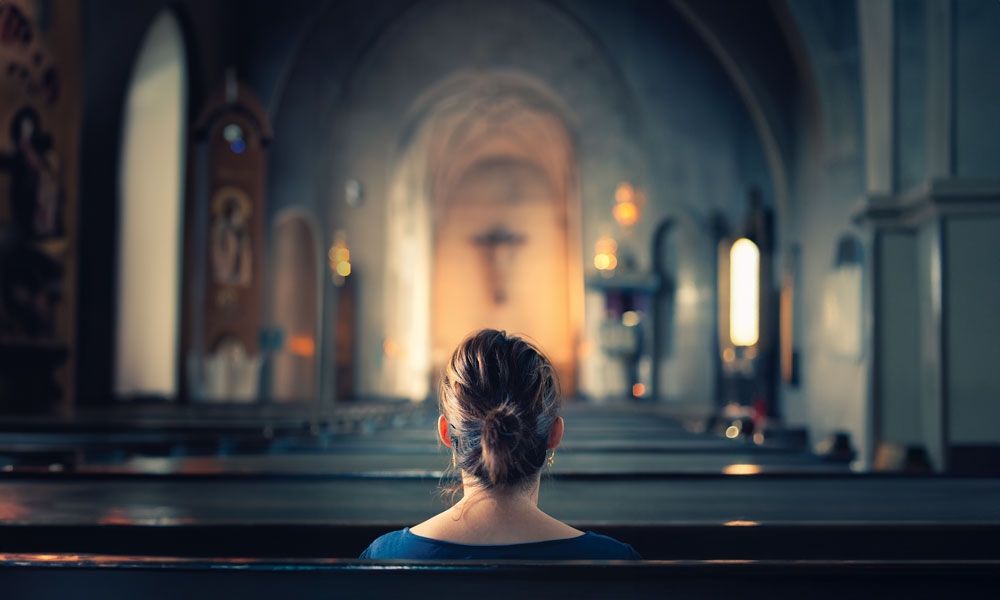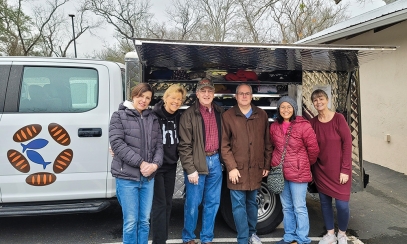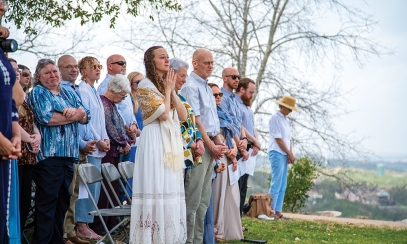
How are we walking with the poor and vulnerable?
A parishioner texted me for help. Her car had died in the parking lot of the fast-food restaurant where she had just finished her late-night shift. It was too late to get it serviced. I gave her a ride “home.” As I bounced down the rutted road, my headlights revealed a landscape of debris, discarded toys and broken appliances; it looked like a tornado had hit.
A parishioner texted me for help. Her car had died in the parking lot of the fast-food restaurant where she had just finished her late-night shift. It was too late to get it serviced. I gave her a ride “home.” As I bounced down the rutted road, my headlights revealed a landscape of debris, discarded toys and broken appliances; it looked like a tornado had hit.
She pointed me to a dilapidated shack, where the owners rented her a couch to sleep on. It was all she could afford. No one answered when she knocked on the door, so we drove back to my house, where she slept in our guest bedroom. The next morning, I found out she had slept on the floor, deeming the bed “too nice” to disturb.
This episode reminds me of two of the seven core tenets of Catholic social teaching (CST): the preferential option for the poor and vulnerable and dignity of work. The first describes how we Catholics, following Jesus’ example, are to help first those in greatest material need. The second describes the rights of workers to productive work, to fair wages, to join unions and to private property.
We encounter teaching on caring for the poor as far back as the Book of Leviticus: “A portion of the harvest is [to be] set aside for the poor and the stranger.” Our modern understanding comes from our bishops: “The 'option for the poor' is not an adversarial slogan that pits one group or class against another. Rather it states that the deprivation and powerlessness of the poor wounds the whole community ... healed only by greater solidarity with the poor ...” (USCCB, Economic Justice for All, 88)
My encounter with this “working poor” parishioner underscores these two CST tenets: she worked but didn’t earn enough to afford decent housing. The restaurant, while providing her a job, undermined her dignity as a worker and kept her in poverty by limiting her wages and hours to support their profits.
As elections loom on the horizon, we are called to form our consciences and vote accordingly. As Catholics we are necessarily called to review, pray about, and seek candidates, platforms, and policies that uphold CST – recognizing that we are our brothers’ and sisters’ keepers, and that a living wage is a basic right of workers.
The woman whose story I share was eventually helped by our parish to find subsidized housing for low-income earners. She drives a donated car to and from the jobs she works.
She also drives to and from church, where I see her in the Adoration Chapel glowing with the graces of the Beatitudes: meekness, purity of heart, humility, longing for righteousness - even as she witnesses to poverty and work insecurities. She is truly blessed. In so many ways she is more free than many of us; as St. Theresa of Calcutta explained, “The more you have, the more you are occupied, the less you give. But the less you have the more free you are. Poverty … is a freedom. It is not mortification, a penance. It is joyful freedom. There is no television here, no this, no that. But we are perfectly happy.
And I am truly blessed, for this parishioner’s poverty calls me out of my middle-class security to encounter her insecurities of affordable housing and earning a living wage. It allows me to follow Jesus in taking care of the least of his brothers and sisters. “Only in heaven will we see how much we owe to the poor for helping us to love God better because of them,” Mother Theresa said.
May we all hear and feel the call to follow Jesus. As Pope Francis has said: “It is not enough to say we are Christians. We must live the faith, not only with our words, but with our actions.”
Deacon Dan Lupo serves at St. Thomas More Parish in Austin. He is a diocesan spiritual director, a healing prayer minister and a retreat leader. Contact him at deacondanlupo@yahoo.com.



